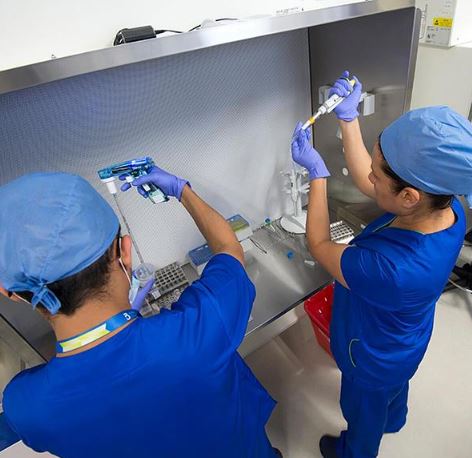Klinefelter Syndrome, also known as XXY, is a genetic condition that affects men, characterized by the presence of an extra X chromosome. Normally, males have one set of XY chromosomes, but in the case of Klinefelter Syndrome, they have at least one extra X, resulting in the XXY configuration or, in less common cases, multiple additional Xs or mosaicisms.
Why is it called that way?
This condition is named after Dr. Harry Klinefelter, who in 1942, along with his colleagues, first described the characteristics of men who had small testicles, absence of facial and body hair, and gynecomastia (development of breast tissue in men).
What does the syndrome consist of?
Klinefelter Syndrome affects sexual and reproductive development. Men with this condition usually have smaller testicles, which directly impacts the production of testosterone, the male hormone essential for sexual and reproductive development. Reduced testosterone can lead to various symptoms such as low libido, erectile dysfunction, infertility, insufficient muscle development, increased adipose tissue, and in some cases, learning and behavioral problems.

How does it affect fertility?
One of the most significant impacts of Klinefelter Syndrome is infertility. Most men with this condition produce little or no sperm, making it difficult to conceive children naturally. However, thanks to advances in reproductive medicine, some men with Klinefelter Syndrome can have children through assisted reproduction techniques, such as extracting sperm directly from the testicles (TESE) and their subsequent use in In Vitro Fertilization (IVF).
Diagnosis
The diagnosis of Klinefelter Syndrome is usually made through a blood test known as a karyotype, which allows a person’s chromosomes to be visualized. This diagnosis is often made during childhood due to developmental problems or later in life due to fertility problems.
Treatments
There is no cure for Klinefelter Syndrome, but there are treatments available to manage the symptoms. Testosterone replacement therapy can help improve muscle strength, hair growth, and mood. Fertility can be addressed through assisted reproduction methods, and educational and psychological support is essential to manage any learning or social problems.

Hopes and solutions
For people with Klinefelter Syndrome, the quest to have a child can be challenging, but not impossible. Centers specialized in assisted reproduction offer hope through advanced and personalized technologies for each case. Although Ingenes specializes in finding reproductive solutions, it is crucial to approach a specialist who can provide an accurate diagnosis and recommend the best treatment plan, taking into account the particularities of each individual and their desire to become a parent.
In summary, Klinefelter Syndrome is a genetic condition that poses certain challenges, especially in the area of fertility. However, with the correct diagnosis and appropriate treatment, many men with this condition can lead full and satisfying lives, including the possibility of starting a family.
Commitment to Your Dream
At Ingenes, your desire to start a family is our top priority. Our commitment is to provide you not only with cutting-edge treatments but also hope and support on your journey to parenthood. Through our experience, technology, and understanding, we work tirelessly to transform the dream of having a baby at home into a tangible reality for those affected by Klinefelter Syndrome.
Fertility can be compromised by Klinefelter Syndrome, but at Ingenes, we firmly believe that with the right approach and the right support, the path to parenthood remains achievable and full of possibilities.

